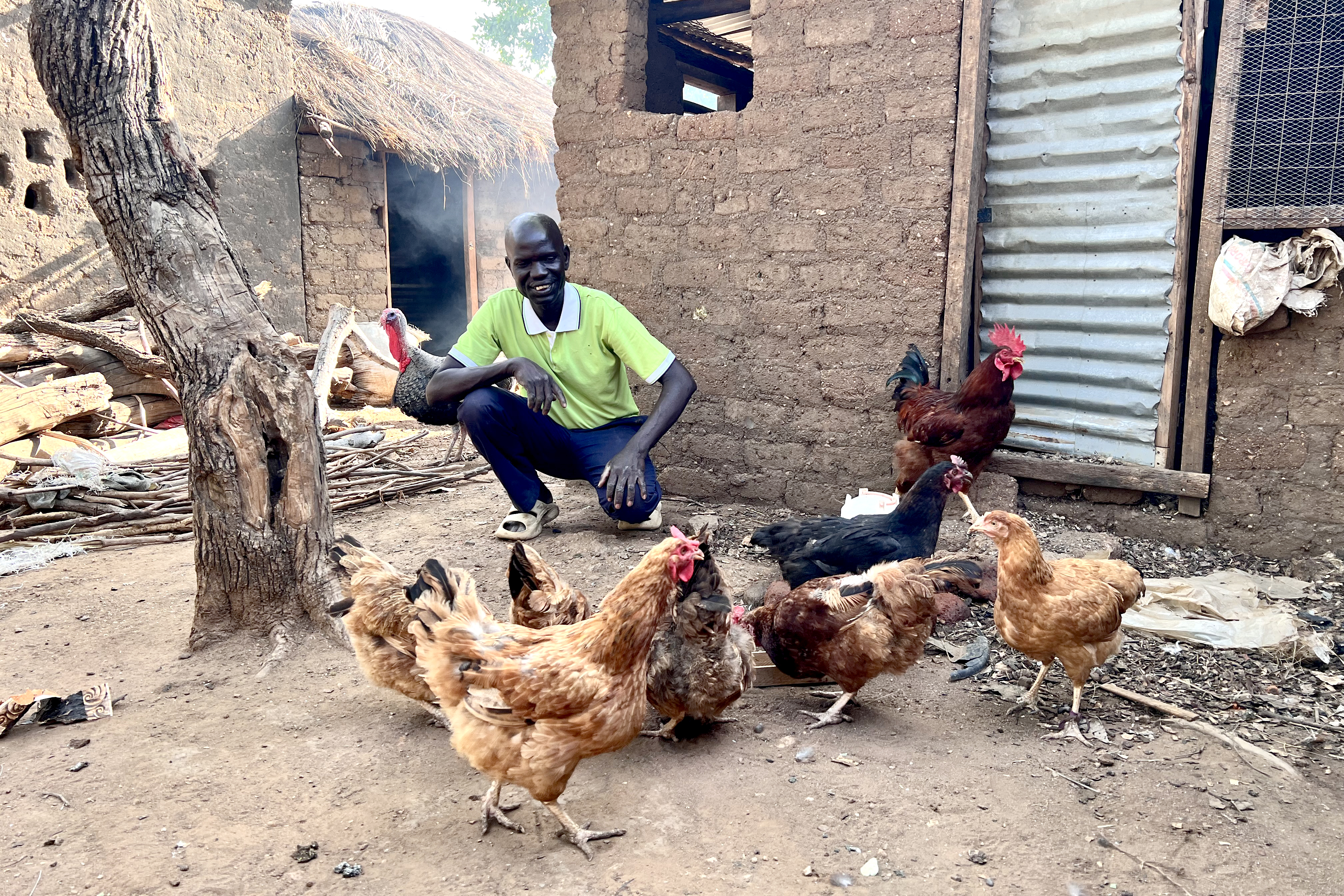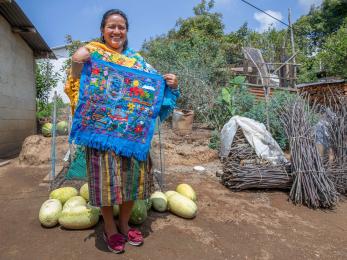How supporting small businesses unlocks brighter futures in the Pacific Northwest

Syrian refugees, single mothers and determined young professionals alike make up the vibrant community of small business owners across the Pacific Northwest. These entrepreneurs often write their own path to success — fearlessly balancing limited sources of funding and modest business know-how with an unmatchable sense of grit.
It is estimated that there are over 25 million small businesses in the United States that represent 60 to 80 percent of the nation’s workforce. In Oregon and Washington alone, nearly 1 million small businesses employ over half of the private workforce in each state.
Ensuring their continued success is critical to the overall growth and economic health of the region.
Since its inception, Mercy Corps Northwest has placed millions of dollars into the hands of these budding entrepreneurs, fostered the creation of more than 2,500 businesses, and become home to Oregon Small Business Association's Women’s Business Center.
Here are a few of those entrepreneurs’ stories.
Snackrilege

When Rosalind and Clayton McCallard first stumbled across Mercy Corps Northwest in 2013, their business was just an idea.
The self-proclaimed metalheads have a passion for social justice, healthy communities, healthy people, and delicious vegan food. They wanted to channel that passion into a food company.
“I wanted to change the world, and I needed to do something that reflected that,” said Rosalind. “Animal rights are a cornerstone of my value system, and eating is one of the most basic necessities that we all partake in. For me, focusing on plant-based foods was the easiest way to make a difference.”
Rosalind enrolled in Mercy Corps Northwest’s small business advising and a four-week intensive class on developing a business plan to build out her business expertise. She then worked with Mercy Corps Northwest’s alternative lending team, which offers financing for those left out of the traditional banking institutions, to secure the additional funding she needed to get up and running. With a better understanding of business and funding to get started, she and her husband pushed forward to make tasty, affordable, plant-based foods.
Snackrilege was soon in business as a food cart. But to her surprise, that wouldn’t be where the business ultimately landed.

“I thought we built up enough of a name to be a destination for our customers but it wasn’t the case. We weren’t busy enough to hire staff, so my husband and I had to be there all the time. It was awful — but I struggled to give it up. I didn’t realize how miserable I was and that was affecting our brand,” says Rosalind.
The team took the experience as a learning lesson and explored alternate routes. To their luck, things changed with a bit of re-planning.
“We spent some time to reflect, and got rid of the food cart to focus on what we are good at — making seitan and producing wholesale,” says Rosalind.
Today, Snackrilege flourishes as a wholesale vegan sandwich business spanning stores across the West coast. Whether plant-based, or just a curious eater, Snackrilege foods are perfect for anyone who loves to enjoy a hearty meal that supports a small business.
To support Rosalind and Clayton McCallard, visit their website or stop by a local store to request their products in your hometown.
Trials and Tribulations Art House

Stephen Lawrence first envisioned his business at the beginning of a 15-year prison sentence. The 43 year-old part-time janitor, and budding entrepreneur, was driven to entrepreneurship as part of his journey to “turn a negative life positive.”
His idea emerged when he found himself surrounded by talented artists in prison. Stephen understood the challenges behind earning a living inside and outside of custody, and saw art as a clear route toward a brighter future. The idea received overwhelming support from his fellow inmates, and once out of prison, Stephen spent his time searching for the tools he needed to bring the business to life.
His first step was applying for Mercy Corps Northwest’s IDA Grant. The program supports lower income entrepreneurs by determining a realistic savings goal and awarding it with a set amount of capital upon completion — a method proven to grow stronger financial management skills.
After six months, Stephen had saved his required $600 that was later matched with a $3,000 grant to help fund his company. With this boost of confidence, Trials and Tribulations Art House took full form.
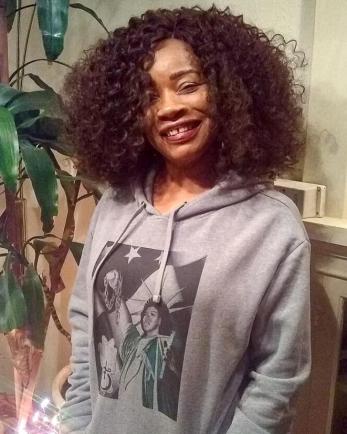
Trials and Tribulations Art House began offering inmates and ex-inmates a second chance and respectable way to earn income. The company focused on apparel as a platform to showcase and sell artwork. At the same time, Stephen was addressing the frequently overlooked employment challenges faced by adults released from prison.
“I have faced a number of personal challenges with my record as a felon. For me, it’s difficult showing people that I can be trusted and that I’m worth investing in. My approach is to continue to let my integrity and hard work speak for itself. I have a part-time job that supports me in building a strong work ethic as I work toward my dream of being an entrepreneur.”
Instead of judging the artist at face-value, Stephen encourages buyers to focus on the product itself.
“People should buy Trials and Tribulations Art House designs because we have cool, original designs that are made by people who are trying to better themselves. It’s how I changed my life for the better.”
To support Stephen Lawrence’s dream of becoming a full-time entrepreneur, visit Trials and Tribulations Art House online.
Our Harvest Song
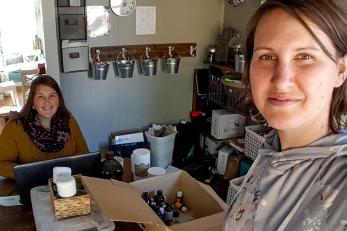
Erica Michener began making skincare products from her Oregon kitchen in 2015. She wanted to create more income for her growing family of seven while ensuring that the products they used were safe and natural. Her business, Our Harvest Song demonstrates her commitment to both.
“I have never had any business training or experience,” shares Erica. “But many of my friends have branched out to start their own businesses, offering wonderful sounding boards for ideas and encouragement when I need support.”
She soon realized, however, that she needed more help to expand the business.
So she came to Mercy Corps Northwest.
In May of 2019, after completing Mercy Corps Northwest’s Business Foundations course, Erica received a matched-savings IDA Grant of $3,000 that provided her with the funds to buy necessary items for the family’s business, including measuring cups, kitchen scales and a computer to expedite business.
Erica engaged her sisters Janelle Williams and Danae Bigelow to strengthen operations on all fronts — while keeping their promise to keep all products chemical-free.
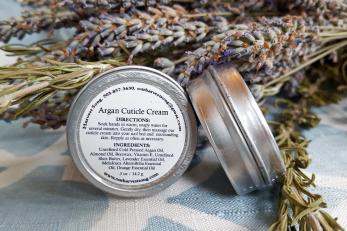
With a combined 25 years of experience creating skincare and herbal remedy products, each brings different skills to the business. Erica offers a decade of experience using natural, wholefood diets to nourish bodies inside and out. Her sister Janelle makes sure all their practices are evidence-based — and not solely upheld by popular opinion. Danae is curious about sustainable living, and the natural healing complexes of plants. She spends time tending to her backyard garden that houses an assortment of natural ingredients.
“We put our hours of research into crafting products that you can feel confident is safe for you and your family to use,” the three owners say. “Everything we sell was created with our loved ones in mind, and tested on those we hold closest. With this knowledge, you can trust that our products will benefit your family at the same time as you support ours.”
The sisters see Our Harvest Song as a way to spend time together while focused on something that they love. Now four years into their business, the group plans to continue expanding their family-friendly line of products.
Our Harvest Song’s family of entrepreneurs attends farmers markets and local events.
About Mercy Corps Northwest
Established in 1988, Mercy Corps Northwest programs address a variety of systemic inequities across Oregon and Washington. The team’s central programming provides small business education, grants and loans for more than 2,000 entrepreneurs each year. Additional programming includes prison re-entry support, community building and local disaster preparedness.
